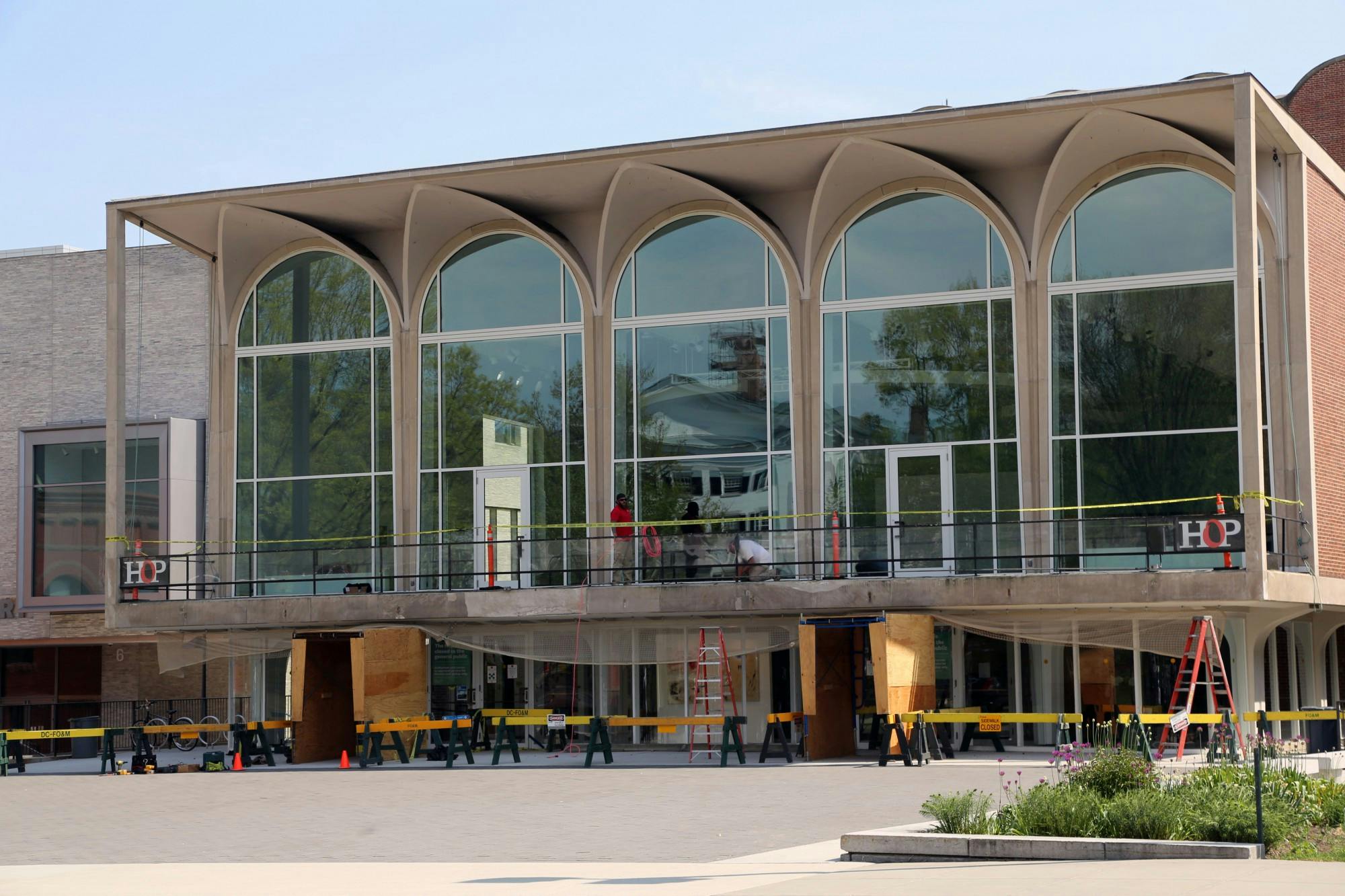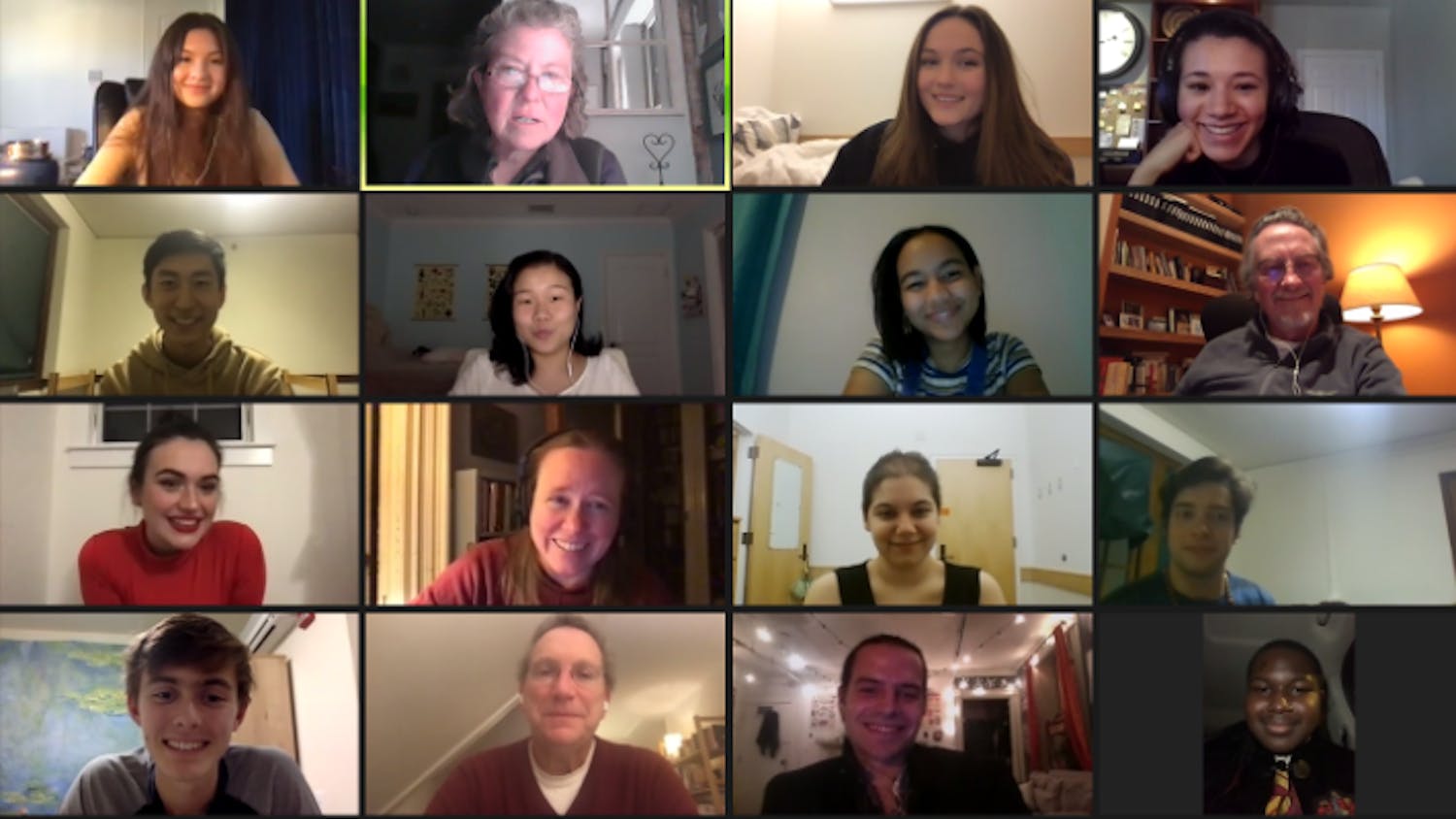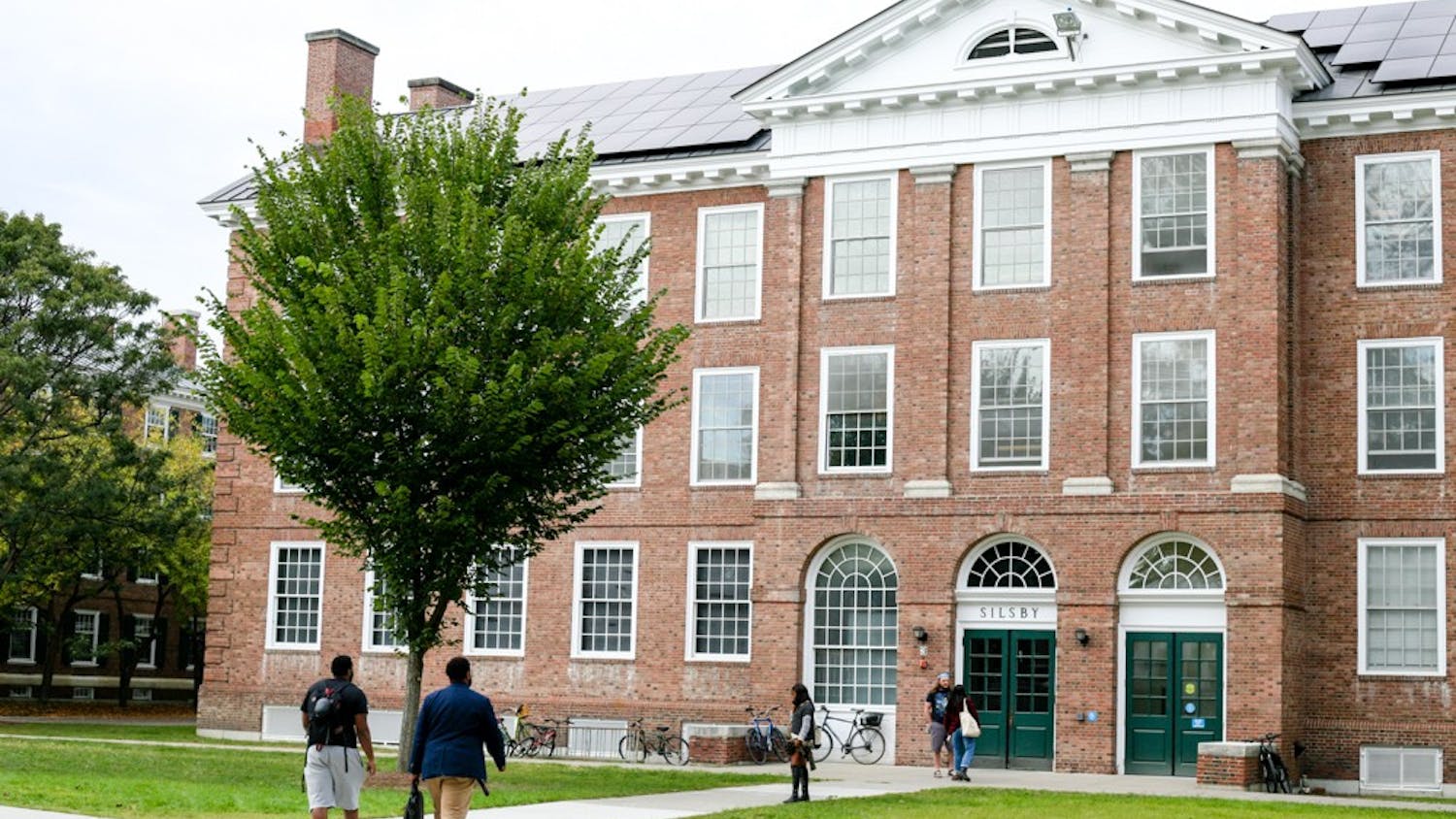This article is featured in the 2021 Spring special issue.
As auditoriums and rehearsal rooms emptied last spring, theater students and faculty had to adjust to new mediums fit for remote productions. This year, the theater department managed to put on their fall and winter mainstage productions, as well as a series of senior thesis projects this spring through experimental virtual mediums.
Last fall’s mainstage production,“Faith, Hope, and Charity,” took the form of a radio play in which actors recorded their audio and sound designer Jane Shaw mixed the recordings with sound effects. The winter brought another mainstage production: “The Radical Joy Project,” in which the directors invited students to come contribute their ideas instead of running auditions. The show consisted of both auditory and visual elements, showcasing student dance, animation, acting and music. This spring, the department focused much of its energy on supporting outgoing students: Five seniors put on productions as part of their senior theses, all of which were rehearsed and performed remotely. The performances ranged from “Bulrusher,” a live-performed radio show directed by Lexi Warden ’21, to “Flourtown,” a pre-recorded musical written and composed by Matt Haughey ’21.
In order to stage these new virtual performances, the theater department faced new technological challenges. Production manager Brianna Parry noted that she and technical director Jason Merwin have had to handle issues like internet connectivity problems and the department had to ship mics to actors across the world, along with other adjustments.
“We're having to learn about all new software programs and mediums and all the ins and outs of Zoom and how [...] you get the tiles to show up where you want,” Parry said.
Parry said she felt that the department was able to make the virtual productions more accessible than past performances, and she hopes to bring some of these elements into future productions.
“Being digital has allowed us to experiment more with access — doing subtitles for pieces, and you can now access them at any time of day,” Parry said. “If you don't make it to the show you can still watch it the next morning. Thinking more consciously about access is going to be an addition to our program and going forward.”
Warden, who directed “Bulrusher” this spring, said she was glad that her production was available online.
“I live on the other side of the country, there was no way I would have been able to have shown this piece to my family or my friends,” Warden said. “I feel very lucky to have gotten to share some of my last performances with people who aren't here.”
Some theater students, like Lucy Biberman ’23, a stage manager for both “The Radical Joy Project” and “Flourtown,” were excited by the creativity and experimentation of the new mediums.
“Theater has changed very little in the last 500 years,” Biberman said. “I think the pandemic has really pushed people to force themselves to think of theater and conceptualize it in different ways. I think now, there’s this different mindset of experimentation, which I think is really, hopefully, going to be an opportunity to bring forward a lot of different voices that haven't been produced before.”
However, the virtual productions had the difficult challenge of emulating the essential elements of a live theater production. For many, including Parry, one of the main draws of theater is its in-person element.
“I got into theater because there is something magical about being in the same room with the people who are creating the art live, right there,” Parry said. “I think theater has the power to change minds and perspectives in a way that many other mediums do not, because of the magical live element.”
Choreographer in residence at Dartmouth Rebecca Stenn felt that dance productions have suffered due to the lack of live performances. She doesn’t think that virtual productions can adequately capture the energy of live performances.
“I feel bereft when I watch [dance] online, because I miss the visceral feeling,” Stenn said. “The scent of the room, the sweat glimmering on the dancers body and the vibration of the floor as they move.”
Theater performances often require a high level of collaboration, said theater department technical director Jason Merwin, making the remote format particularly challenging.
“I can't walk down the hall and go into the director's office and say ‘Hey, can you explain to me this issue that we're having, and we can figure out how to solve it,’” Merwin said. “I’m going to send an email, and then I'm going to wait and wait and wait and hope for a response and hope that the response makes sense so I can help figure it out.”
Professor Carol Dunne is currently teaching the course THEA 35, “Acting for Musical Theater” in person; she and her eight students meet in Moore Theater. Now that Dunne is back in a theater space, she said she realizes the value of the in-person aspects of theater that were lost in a remote format.
“I've taught a ton at Dartmouth online,” she said. “I've learned being back in person, that the perfect, beautiful heart and soul of theater is live.”
Some students have still managed to find communities through theater — even remotely. Min Hur ’24 was involved with “The Radical Joy Project” and two honors thesis productions, all of which took place virtually. She feels that the connections she has made through the department, both with fellow cast members and with faculty, have made her feel very welcomed.
“Even through Zoom, involvement in theater really helped us transition onto this new campus,” Hur said.
Those involved with theater are excited to get back in the physical theater space. When Warden returned to the Warner Bentley Theater, she said “it was almost overwhelming, just to be in the space again, and the fact that we haven't been allowed to be in that space for so long has just been so heartbreaking.”
Correction appended (May 22, 2021): A previous version of this article misattributed one of Warden’s statements to Biberman. The article has been updated to reflect the correct attribution.





